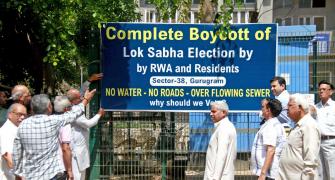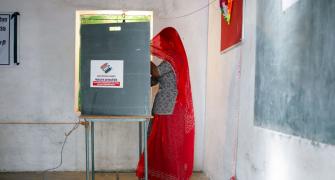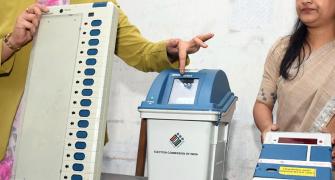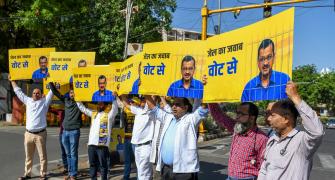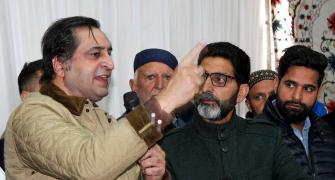Giving the go ahead for resumption of work on the Hogenakkal project, which he had put on hold till the completion of the Karnataka Assembly polls in the face of severe protests, Tamil Nadu Chief Minister M Karunanidhi has directed state officials to complete the work as scheduled by 2011.
The Rs 1,334 crore project envisaged drawing of water from river Cauvery at Hogenakkal, on the Karnataka-Tamil Nadu border, to provide drinking water to the water-starved districts of Dharmapuri and Krishnagiri.
Chairing a review meeting of the Rural Development and Local Administration Department, headed by his son and Minister M K Stalin, at the secretariat, Karunanidhi on Friday night instructed officials to complete the scheme on time. The three-phased assembly elections in Karnataka ended on May 22 and the counting of votes will be taken up on Sunday.
The project led to a war of words between Karunanidhi and Karnataka politicians and pro-Kannada groups, who opposed it. In an initial emphatic declaration, Karunanidhi promised implementation of the project at any cost, but later put it on hold, promising to find an amicable solution to the issue with an elected government in Karnataka after the assembly polls.
His April 5 announcement, putting the Hogenakkal Integrated Water Project on hold, helped in easing tension in both the states, but opposition parties in Tamil Nadu criticised him for his decision.
An official release said Karunanidhi also instructed the officials to expedite works on various other projects, including the seawater desalination plant at suburban Minjur.



